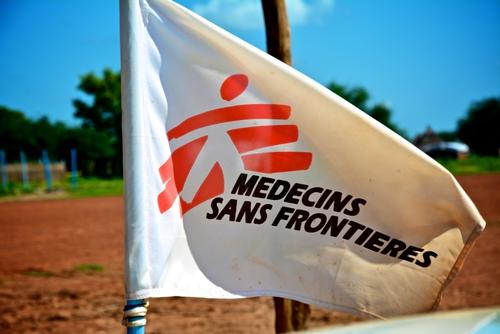- On 14 April, armed men stormed the MSF hospital and office in Ulang, Upper Nile state, South Sudan, looting the premises and threatening our staff.
- This incident has forced us to suspend services at the hospital, leaving the area without a functioning health facility.
- We continue to support health facilities in other areas of Upper Nile state, and call on all parties to the conflict to respect and protect health facilities, patients, civilians, and medical staff.
Upper Nile state – Médecins Sans Frontières (MSF) strongly condemns the armed looting of our hospital and premises in Ulang, Upper Nile state, South Sudan. On the morning of 14 April, dozens of armed men stormed the MSF hospital and office in Ulang town, threatened staff, and looted vital medical supplies and equipment. As a result, all medical services at the hospital — the only functioning health facility in the area — have been suspended.
“We are outraged by the attack on our hospital and the threats against our medical staff in Ulang,” says Zakariya Mwatia, MSF head of mission in South Sudan. “This facility has been a lifeline for the community at a time of escalating violence and an active cholera outbreak. Such attacks on hospitals and healthcare workers are completely unacceptable. We are gravely concerned about the devastating impact the closure of medical services will have on already vulnerable communities, who now face even greater barriers to accessing lifesaving care.”
This facility has been a lifeline for the community at a time of escalating violence and an active cholera outbreak. Such attacks on hospitals and healthcare workers are completely unacceptable.Zakariya Mwatia, MSF head of mission in South Sudan
On the night of 13 April, as violence drew closer to Ulang town, patients began fleeing the hospital in fear — despite being under medical care. At the time, more than 100 patients were admitted and receiving critical treatment, including trauma care, maternity services, and paediatric care. While some patients remained as long as they could, they were ultimately forced to flee when armed men entered the facility and began looting room by room.
Although no injuries to MSF staff have been reported, we remain extremely concerned for the safety of our teams and patients.
“The safety of our staff and patients is our foremost priority. We are taking all necessary measures to evacuate our teams as we fear further escalation of violence,” says Mwatia. “This unacceptable act of violence shows a complete disregard for humanitarian principles and international humanitarian law, and it has directly affected our ability to provide care at a time when it is most urgently needed.”
The attack on Ulang hospital is part of a broader pattern of insecurity affecting healthcare in the area. In January 2025, two clearly marked MSF boats carrying six staff were attacked by armed men while returning to Ulang after delivering medical supplies to Nasir County hospital. That incident forced MSF to suspend all outreach activities in the region.
This unacceptable act of violence shows a complete disregard for humanitarian principles and international humanitarian law, and it has directly affected our ability to provide care at a time when it is most urgently needed.Zakariya Mwatia, MSF head of mission in South Sudan
In Ulang, MSF has been operating a hospital alongside a network of decentralised healthcare services since 2018. In 2024 alone, MSF teams provided over 10,000 outpatient consultations, admitted 3,284 patients, and assisted with 650 maternal deliveries. Over the years, the 60-bed hospital has served as a critical facility for communities affected by violence, disease outbreaks and limited access to healthcare.
The suspension of services at the hospital represents a major blow to healthcare provision in the area, which is now left without a single functioning health facility. This disruption also results in the suspension of critical support by MSF to several healthcare centres across the region, halting vital efforts to treat cholera patients and control the ongoing outbreak. Furthermore, more than 800 patients living with HIV, tuberculosis, and chronic diseases have lost access to their treatment, putting their lives at significant risk.
MSF continues to support health services in other parts of Upper Nile, including Renk and Malakal counties. MSF urgently calls on all parties to the conflict to respect and protect health facilities, patients, civilians, and medical staff, in accordance with the international humanitarian law.
“MSF remains committed to providing impartial, lifesaving care wherever it is needed, but the safety of patients and health workers must be guaranteed,” says Mwatia.



